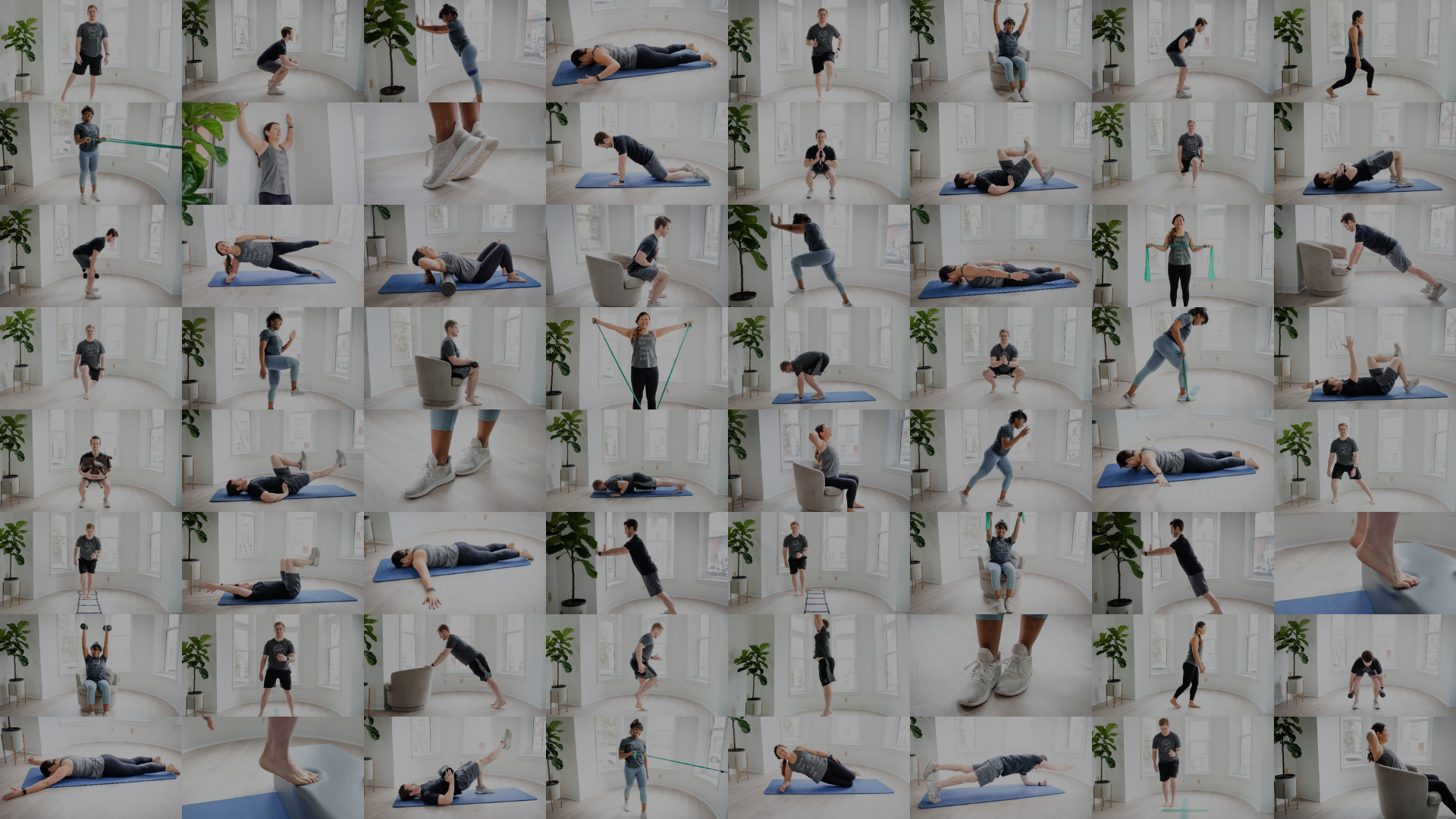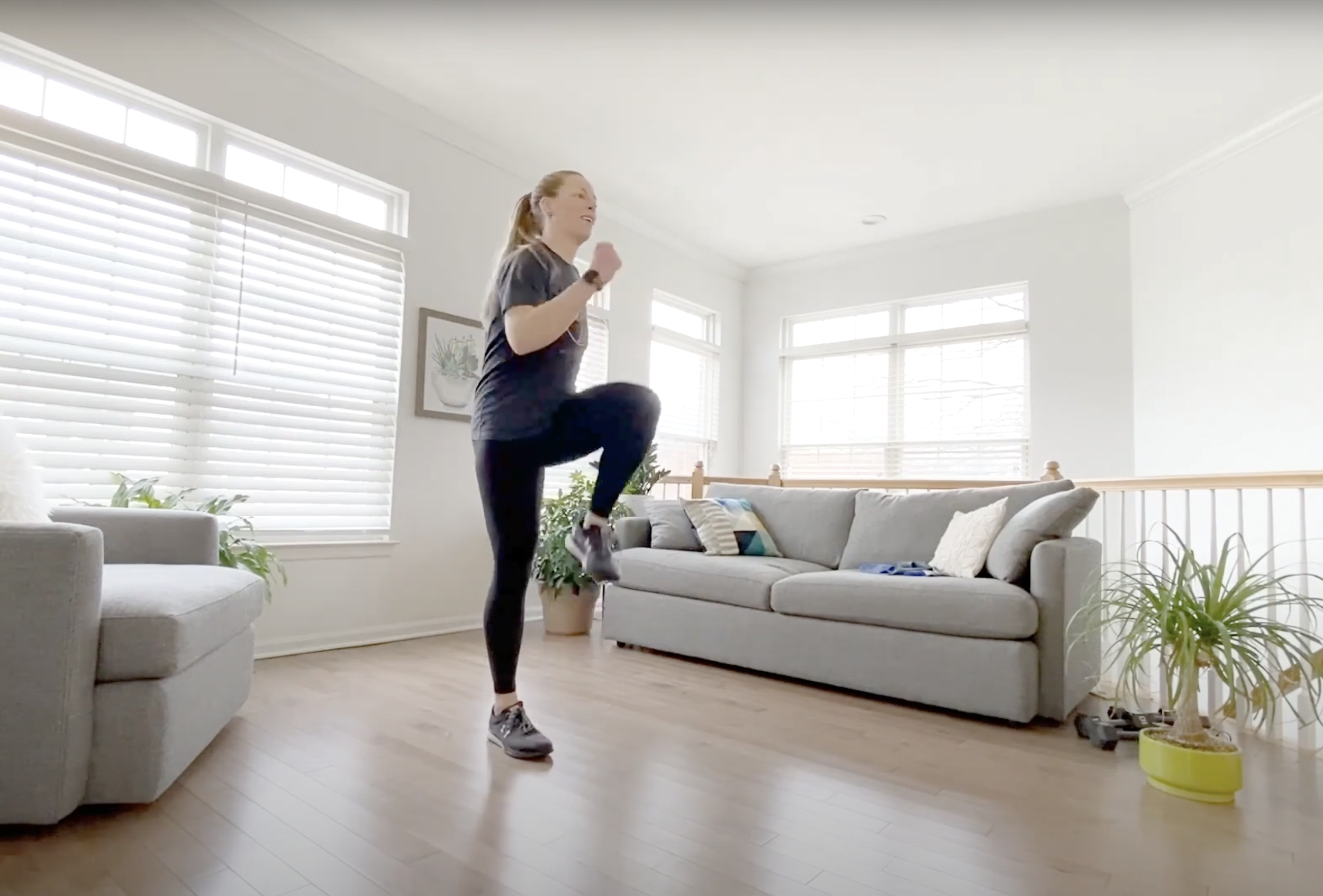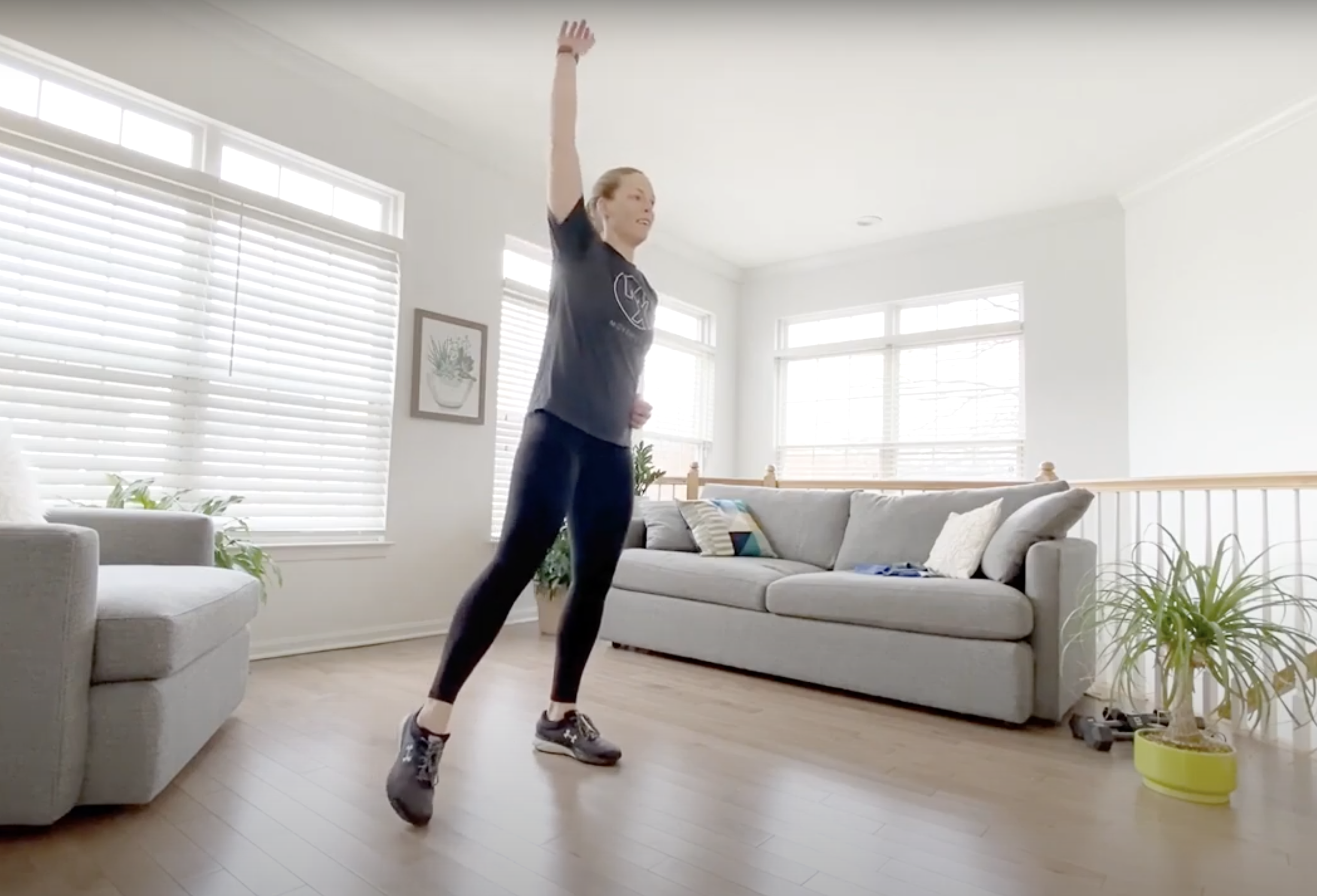
AgeProof Your Body – Exercise Library
Endurance
Exercise Library > Endurance
How to Work on Endurance
While they do not train the strength of individual muscles, these Endurance exercises can be useful to develop the body’s cardiovascular and metabolic systems. We often use them for warm up, for active recovery (keeping heart rate high while other muscles recover), and for Cardio Bursts (brief bouts of high intensity cardiovascular work).
Endurance relates to the ability for our individual tissues and whole body to work for longer periods of time. Use these exercises to improve the length and intensity of your workouts, and to train your body’s ability to keep moving for long periods of time.
Here are three exercises to work on Endurance.
Level 1:
Standing March
Level 2:
Running In Place
Level 3:
Jumping Jacks
Level 1
Standing March
From a standing position, march your feet by driving one knee up toward the ceiling, then lower down and repeat.
Swing the opposite arm upward at the same time as the leg. Stay tall through the upper body while continuing to march.
Level 2
Running In Place
From a standing position, begin by marching in place, then increase your step rate as you begin to jog or run in place.
Keep your arms moving as you perform quick, alternating hops on each leg.
Level 3
Jumping Jacks
From a standing position, jump your feet out wide while reaching your arms overhead. Jump again to bring your feet back together as you lower your arms to your sides.
🟢 What You Should Feel:
Your heart and lungs working; the muscles in your legs and arms working.
🔴 What You Shouldn’t Feel:
Pain in the chest or legs
📶 Progression Criteria:
Progress to the next level or add resistance when you can perform each exercise for >1 minute without instability or fatigue.
More Variations & Progressions
If Jumping Jacks are too difficult, consider Step Jacks (stepping out to the side and reaching overhead, as demonstrated) or Half Jacks (a normal jumping jack movement with the legs, but leaving the arms at the side).
Remember to consult with your individual doctor or physical therapist with specific questions or concerns regarding exercise.
Want to learn more?
Join our online exercise community for individuals 60+ to learn more exercises and strategies for healthy aging from our team of movement experts.





